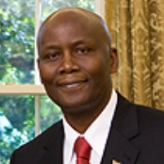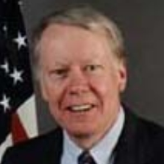Kenya
Kenya is a country in eastern Africa, occupying a coastal strip of white sand beaches, a temperate highland region, and the Serengeti, a series of semiarid plains where much of Africa’s famous animals live. The country is bordered by Tanzania, Uganda, Ethiopia, Somalia and Sudan, and also by Lake Victoria. Kenya was settled around 2000 BC first by Arab and Persian settlements, who settled the coastal regions, then by the Bantu and Portuguese, who arrived in the 15th century. Kenya became a British colony in 1920, however many Kenyans were unhappy with their relationship with the British colonists, which led to uprisings against the colonial government. Specifically, the Mau Mau Uprising from 1952 to 1960 was a great, though unsuccessful, movement of Kenyan peasants against British rule that encouraged Kenyan independence. On December 12, 1963, Kenya gained independence from the British under the government of Jomo Kenyatta, who would become the first president of independent Kenya. Though the country has been comprised of several opposition parties for several years now, the 2007 elections proved to be seriously flawed, with turnout in excess of 100% in some areas. Incumbent Mwai Kibaki was finally declared president in December 2007, and soon signed a power-sharing agreement with members of the coalition government. In November 2008, Barack Obama, whose father was from Kenya, sparked nationwide celebrations in Kenya when he won the US presidency.
Lay of the Land: Straddling the equator on the east coast of Africa, Kenya is a land of great geographical variety. The steamy coastal strip with its white powdery beaches and tropical palms contrasts sharply with the undulating fields of wheat and corn growing in the temperate central highland region in the shadow of snowcapped Mount Kenya. In between are semiarid plains where many of the wild African animals, for which Kenya is so famous, dwell. In the north, a great desert extends into the territory of Kenya’s northern neighbors, Ethiopia, Somalia, and the Sudan. In the west, Africa’s largest lake, Lake Victoria, forms much of Kenya’s border with Uganda. To the south are the Amboseli plains, teeming with game, as is the Masai Mara National reserve and the Nakuru National Park, all of which are highly visited game areas in Kenya. The country bordering southern Kenya is Tanzania, home of the world-famous Mt. Kilimanjaro.
According to fossils found in the area, suggesting that Kenya was inhabited by primates more than 20 million years ago. Scientists believe that hominids lived in East Africa, near Kenya’s Lake Turkana, approximately 2.6 million years ago.
Since its independence in 1963, Kenya has enjoyed cordial relations with the United States.
Famous Kenyan-Americans
According to the US Ambassador to Kenya, Michael Ranneberger, about $2 billion flows between the United States and Kenya every year via aid, investments, tourism and remittances.
Obama Photo Sparks Demonstration, Controversy
According to the Amnesty International 2009 Report, the government failed to put in place a plan to bring to justice those responsible for human rights abuses committed during post-election violence, which subsided early in 2008, or to guarantee reparations for the victims. State security officials continued to torture and kill suspects with impunity. Violence against women and girls remained widespread. The government did not impose a moratorium on forced evictions. Public health facilities were poorly funded, equipped and maintained.
Note: Embassy Nairobi was established Dec 12, 1963, with Laurence C. Vass as Chargé d’Affaires ad interim.
 Odembo, Elkanah
Odembo, Elkanah
Elkanah Odembo began serving as Kenya’s Ambassador to the United States in June 2010.
- Table of Contents
- News
- Overview
- Basic Information
- History
- Newspapers
- History of U.S. Relations with Kenya
- Current U.S. Relations with Kenya
- Where Does the Money Flow
- Controversies
- Human Rights
- Debate
- Past Ambassadors
- Ambassador to the U.S.
- Embassy Web Site in the U.S.
- Comments
- Leave a comment
U.S. Ambassador to Kenya

President Barack Obama has nominated career diplomat Robert F. Godec to be the next ambassador to the East African nation of Kenya. If confirmed, Godec, who has served as chargé d’affaires at the embassy in Nairobi since August 27, would succeed political appointee Scott Gration, who resigned from his position last June over “differences in leadership styles and priorities with Washington.”
Born circa 1957 to Robert F. Godec and Nancy (Dietrich) Godec, Godec graduated from W.T. Woodson High School in Fairfax, Virginia, in 1975. He went on to earn a B.A. in Foreign Affairs at the University of Virginia, where he was associate news editor on the student newspaper The Daily Cavalier, and an M.A. in International Relations at Yale University.
A career member of the Senior Foreign Service, Class of Minister-Counselor, Godec joined the State Department in 1985. Now focused on Africa and the Middle East, earlier in his career Godec worked on relations with Southeast Asia, serving as director for Southeast Asian Affairs at the Office of the U.S. Trade Representative from 1992 to 1994, and as assistant office director for Thailand and Burma in the State Department’s Bureau of East Asian and Pacific Affairs from 1994 to 1996.
Godec has served in Kenya once before, as economic counselor at the embassy in Nairobi from 1996 to 1999, followed by additional African experience as minister counselor for Economic Affairs at the embassy in Pretoria, South Africa, from 1999 to 2002, concurrently filling the post of acting deputy chief of mission in 2002. In Washington, Godec served as deputy coordinator for the Transition in Iraq from 2004 to 2005, and as deputy assistant secretary in the Bureau of Near Eastern Affairs from 2005 to 2006.
From 2006 to 2009, Godec was the U.S. ambassador to Tunisia, his first ambassadorship. According to diplomatic cables released by Wikileaks, Godec was quite critical of the regime of President Zine el-Abidine Ben Ali, describing his “sclerotic regime,” as a “police state” mired in corruption, an evaluation that was much-appreciated by pro-democracy forces in Tunisia when it was made public. Back in Washington, Godec served as principal deputy coordinator for Counterterrorism at the State Department from 2009 to 2012.
Godec speaks French and German, although neither of these will be especially helpful in Kenya, a former British colony. He has been married to Lori G. Magnusson since May 1986.
-Matt Bewig
To Learn More:
Democratic Movements (by Steve Coll, New Yorker)
morePrevious U.S. Ambassador to Kenya

Michael E. Ranneberger was sworn in as the new United States Ambassador to Kenya on July 31, 2006. Ranneberger obtained a BA from Towson State University in Baltimore and an MA in history from the University of Virginia.
Kenya is a country in eastern Africa, occupying a coastal strip of white sand beaches, a temperate highland region, and the Serengeti, a series of semiarid plains where much of Africa’s famous animals live. The country is bordered by Tanzania, Uganda, Ethiopia, Somalia and Sudan, and also by Lake Victoria. Kenya was settled around 2000 BC first by Arab and Persian settlements, who settled the coastal regions, then by the Bantu and Portuguese, who arrived in the 15th century. Kenya became a British colony in 1920, however many Kenyans were unhappy with their relationship with the British colonists, which led to uprisings against the colonial government. Specifically, the Mau Mau Uprising from 1952 to 1960 was a great, though unsuccessful, movement of Kenyan peasants against British rule that encouraged Kenyan independence. On December 12, 1963, Kenya gained independence from the British under the government of Jomo Kenyatta, who would become the first president of independent Kenya. Though the country has been comprised of several opposition parties for several years now, the 2007 elections proved to be seriously flawed, with turnout in excess of 100% in some areas. Incumbent Mwai Kibaki was finally declared president in December 2007, and soon signed a power-sharing agreement with members of the coalition government. In November 2008, Barack Obama, whose father was from Kenya, sparked nationwide celebrations in Kenya when he won the US presidency.
Lay of the Land: Straddling the equator on the east coast of Africa, Kenya is a land of great geographical variety. The steamy coastal strip with its white powdery beaches and tropical palms contrasts sharply with the undulating fields of wheat and corn growing in the temperate central highland region in the shadow of snowcapped Mount Kenya. In between are semiarid plains where many of the wild African animals, for which Kenya is so famous, dwell. In the north, a great desert extends into the territory of Kenya’s northern neighbors, Ethiopia, Somalia, and the Sudan. In the west, Africa’s largest lake, Lake Victoria, forms much of Kenya’s border with Uganda. To the south are the Amboseli plains, teeming with game, as is the Masai Mara National reserve and the Nakuru National Park, all of which are highly visited game areas in Kenya. The country bordering southern Kenya is Tanzania, home of the world-famous Mt. Kilimanjaro.
According to fossils found in the area, suggesting that Kenya was inhabited by primates more than 20 million years ago. Scientists believe that hominids lived in East Africa, near Kenya’s Lake Turkana, approximately 2.6 million years ago.
Since its independence in 1963, Kenya has enjoyed cordial relations with the United States.
Famous Kenyan-Americans
According to the US Ambassador to Kenya, Michael Ranneberger, about $2 billion flows between the United States and Kenya every year via aid, investments, tourism and remittances.
Obama Photo Sparks Demonstration, Controversy
According to the Amnesty International 2009 Report, the government failed to put in place a plan to bring to justice those responsible for human rights abuses committed during post-election violence, which subsided early in 2008, or to guarantee reparations for the victims. State security officials continued to torture and kill suspects with impunity. Violence against women and girls remained widespread. The government did not impose a moratorium on forced evictions. Public health facilities were poorly funded, equipped and maintained.
Note: Embassy Nairobi was established Dec 12, 1963, with Laurence C. Vass as Chargé d’Affaires ad interim.
 Odembo, Elkanah
Odembo, Elkanah
Elkanah Odembo began serving as Kenya’s Ambassador to the United States in June 2010.
Comments
U.S. Ambassador to Kenya

President Barack Obama has nominated career diplomat Robert F. Godec to be the next ambassador to the East African nation of Kenya. If confirmed, Godec, who has served as chargé d’affaires at the embassy in Nairobi since August 27, would succeed political appointee Scott Gration, who resigned from his position last June over “differences in leadership styles and priorities with Washington.”
Born circa 1957 to Robert F. Godec and Nancy (Dietrich) Godec, Godec graduated from W.T. Woodson High School in Fairfax, Virginia, in 1975. He went on to earn a B.A. in Foreign Affairs at the University of Virginia, where he was associate news editor on the student newspaper The Daily Cavalier, and an M.A. in International Relations at Yale University.
A career member of the Senior Foreign Service, Class of Minister-Counselor, Godec joined the State Department in 1985. Now focused on Africa and the Middle East, earlier in his career Godec worked on relations with Southeast Asia, serving as director for Southeast Asian Affairs at the Office of the U.S. Trade Representative from 1992 to 1994, and as assistant office director for Thailand and Burma in the State Department’s Bureau of East Asian and Pacific Affairs from 1994 to 1996.
Godec has served in Kenya once before, as economic counselor at the embassy in Nairobi from 1996 to 1999, followed by additional African experience as minister counselor for Economic Affairs at the embassy in Pretoria, South Africa, from 1999 to 2002, concurrently filling the post of acting deputy chief of mission in 2002. In Washington, Godec served as deputy coordinator for the Transition in Iraq from 2004 to 2005, and as deputy assistant secretary in the Bureau of Near Eastern Affairs from 2005 to 2006.
From 2006 to 2009, Godec was the U.S. ambassador to Tunisia, his first ambassadorship. According to diplomatic cables released by Wikileaks, Godec was quite critical of the regime of President Zine el-Abidine Ben Ali, describing his “sclerotic regime,” as a “police state” mired in corruption, an evaluation that was much-appreciated by pro-democracy forces in Tunisia when it was made public. Back in Washington, Godec served as principal deputy coordinator for Counterterrorism at the State Department from 2009 to 2012.
Godec speaks French and German, although neither of these will be especially helpful in Kenya, a former British colony. He has been married to Lori G. Magnusson since May 1986.
-Matt Bewig
To Learn More:
Democratic Movements (by Steve Coll, New Yorker)
morePrevious U.S. Ambassador to Kenya

Michael E. Ranneberger was sworn in as the new United States Ambassador to Kenya on July 31, 2006. Ranneberger obtained a BA from Towson State University in Baltimore and an MA in history from the University of Virginia.







Comments